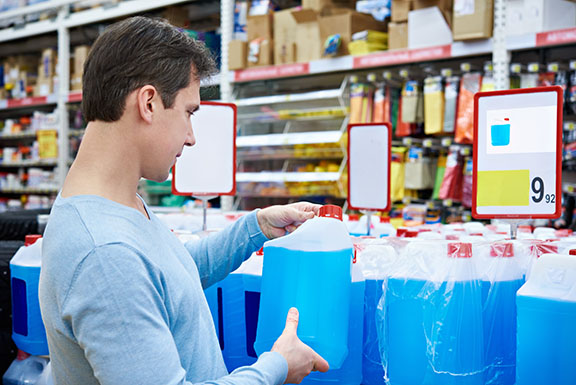Are You Using the Right Antifreeze for Winterizing Cleaning Equipment?

When it comes to winterizing your equipment, it may be tempting to choose the cheapest antifreeze option out there, such as windshield wiper fluid. However, it’s better to choose an RV antifreeze. These are designed to help keep plumbing systems safe by raising the freezing point of water, and they are non-toxic. However, not all RV antifreeze is the same.
The first type of RV antifreeze has ethanol – yes, the same stuff that’s in pure grain alcohol – as its primary component. These are generally the cheapest options. According to a blog on RV Life, ethanol-based antifreeze can have some side effects, like damaging rubber seals. It also leaves a nasty smell that takes awhile to get rid of. It’s also highly flammable.
The preferred option is RV antifreeze that contains propylene glycol, which works as a lubricant. Propylene glycol protects your equipment’s moving parts, so your equipment should be ready to run right away the next time you use it. Dow Chemical, however, warns that some glycol-based antifreeze is made with recycled products, which Dow warns can come with some additional chemicals in it. This may not be an issue since we’re not worried about if the water is potable, but it is something to be aware of. If you’re worried about it, research whether or not the brand you are looking at is “virgin” antifreeze, which is what Dow is promoting with their Dowfrost. (A lot of house brands are “virgin” as well.)
You may also run across ethanol/propylene glycol blends, but these have the same problems as ethanol – i.e., combustible, stinky, and can dry out seals.

